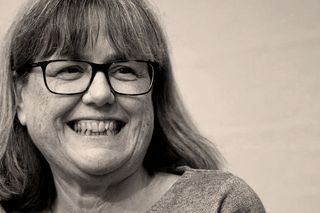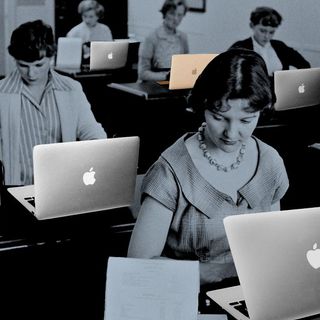
It Took a Nobel Prize for a Female Scientist to Be ‘Notable’ Enough for Wikipedia
We’re literally still writing women out of history.

In a historic turn for the recognition of women in STEM, last week, Donna Strickland, an associate professor at the University of Waterloo, was awarded the Nobel for her work in Physics. She is the first woman in 55 years to receive the honor, and only one of three who has ever received it (the other two are Marie Curie and Maria Goeppert-Mayer). And yet, Wikipedia didn’t think her worthy of a personal page as recently as two months ago.
In May 2018, an editor rejected an application to have Strickland’s bio listed on Wikipedia. The deletion metadata cited that the submission “was about a person not yet shown to meet notability guidelines.” Of course, within 90 minutes of the announcement of the Nobel Prize, that decision was swiftly reevaluated and her page was published, with, of course, the addition of the Prize to her bio.
Someone at Wikipedia screwed up.
First, what does it mean to be famous enough to have your own Wikipedia page? Well, according to Wikipedia’s ‘notability’ guidelines, a biographical page subject must meet any of the listed criteria:
- The person has received a well-known and significant award or honor, or has been nominated for such an award several times.
- The person has made a widely recognized contribution that is part of the enduring historical record in his or her specific field.
- The person has an entry in the Dictionary of National Biography or similar publication.
Furthermore, for academics, specifically, the notability guidelines state that “Having published work does not, in itself, make an academic notable, no matter how many publications there are. Notability depends on the impact the work has had on the field of study.” It’s entirely possible that Strickland didn’t meet a Wikipedia’s editor criterion for having published enough papers in academic journals — the ostensible reason given by that editor — but as the notability criteria themselves state, a scientist only has to qualify by virtue of their impact on their field.
It’s safe to say that a physicist who wins the Nobel Prize likely checks at least the box for criterion number two, if not number one as well. In fact, Strickland shares the prize with a male scientist, Gerard Mourou, who has had a Wikipedia page since at least 2005. Maddeningly, Mourou and Strickland, together, co-invented a laser technique called chirped pulse amplification. Presumably, they didn’t do all that work between May 2018 and yesterday.
But here’s why this is so frustrating. Wikipedia has already recognized its own bias in promoting the achievements of women. Through a WikiProject called Women in Red, the platform is trying to correct the fact that currently, only 17.82% of its biographical entries are about women. (Its track record for women in STEM fields is particularly dismal.) As an organization, Wikipedia has identified its own bias and made a public effort out of trying to correct it; and still failed Strickland.
This failure highlights how deep societal gender bias runs. As a crowd-sourced and crowd-vetted repository of the world’s ‘objective’ information, Wikipedia in many ways reflects the innermost instincts of its contributors and editors about what is valuable and notable information. The patent lack of female representation in the realm of academic, scientific, or medical achievements may be a reflection of centuries of lack of opportunity and structural bias that kept women away from work, or science, or naked ambition. That is certainly one explanation.
But this points to something different: Strickland’s Wikipedia page reminds us that even when women do achieve, against the odds, they have to fight even harder to get recognition. Perhaps even more dangerously, the way Strickland ultimately convinced a Wikipedia editor she was worthy of a page was by winning the Nobel Prize, meaning that her impact in her field still needed to be validated by an institution that itself struggles with gender bias. In other words, we are leaving women at the mercy of predominantly male-run institutions, with traditionally male-centered bias, to determine whose achievements get written into history. Wikipedia has a responsibility if it seeks to be the world’s encyclopedia; it is the platform that, in many ways, confers on people importance within their fields. If more women were featured on Wikipedia, their achievements would be plain for all to see. If Wikipedia instead waits for other male-dominated institutions to grant women visibility first, we are stuck, in an endless cycle, yet again, of rendering women’s work invisible.
Incidentally, do you know who Richard Strand is? He’s a linguist and anthropologist who studies little-known languages in Afghanistan. We’re not really sure if he’s ever published anything of note because his cursory Wikipedia page doesn’t list any publications.
What about Charles Brennan? Not sure? He’s a Professor of Food Science at Lincoln University, New Zealand. Besides his educational and workplace history, his very short Wikipedia page doesn’t mention any publications, awards, honors, or external recognition of any kind that would make his work notable.
We could go on, but we’ve got too much we’d rather accomplish instead…
Related


Working Nights Liberated Me, Even If It Took A Toll On My Health
